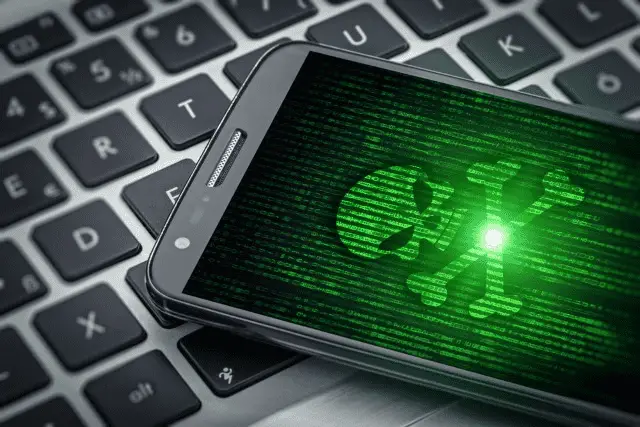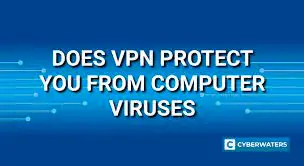
Does VPN protect you from viruses and malware? The answer is yes. There are over 560,000 new malware pieces detected every day, many of which are carried via relentless online ads. Luckily, many advanced VPNs include an ad and malware blocker as part of their core technology. While VPNs don’t prevent viruses directly, they can identify sites that host malware and prevent them from reaching your device.

Viruses
Malware and viruses are the main cause of lost data and slowing down computers.
Compromising system files
Malware and viruses attack your computer by compromising system files and destroying confidential information. They can affect hardware and software, causing billions of dollars in damages each year. Malicious software can spy on your keystrokes and send spam to your contacts. Trojans and viruses can also allow hackers to remotely access your PC and steal confidential information. A VPN cannot protect you from malware and viruses, but it can help protect you from malware and viruses.
Using a VPN
When using an anonymous VPN, you should always be careful online. Use a secure browser and enable anti-malware and firewall protection. Many operating systems already include anti-malware and firewall software. Using a VPN to protect your online privacy is an excellent idea. You can install a VPN on multiple devices and still have peace of mind. With proper VPN protection, your online privacy will be secure. When using a public WiFi hotspot, be aware that this type of connection has no encryption.
When using a VPN, remember to keep an active Internet connection. Malware can destroy your computer if it is disconnected from the web. Malwarebytes, ESET, and Norton antivirus can help protect you from this type of malicious software. A VPN should also be used along with comprehensive anti-virus software. This software will help protect your private information from being hacked or stolen. But don’t rely on a VPN to protect you from viruses and malware – your computer needs both.
Malware
Antivirus software is important for the protection of your devices, but there are many ways to ensure your safety.
VPN protection
Antivirus software will scan your device and isolate any suspicious code, but it does not always protect you against all malware and viruses. A VPN will act as a camouflage for your internet connection, preventing hackers from tracking your online activities. Some antivirus programs can detect and remove malware on their own. Other programs work together with antivirus software to give you the most protection.
Viruses are a common threat to your computer, which can compromise your system files and destroy confidential information. They affect hardware and software and are responsible for billions of dollars in damage. Viruses can log keystrokes and collect sensitive information, and they can even send spam to your contacts. A fastest VPN will not protect you from these issues, but it will make them more difficult to find while avoid connectivity issues. While some VPNs have additional security features, some are not as good at protecting your devices from viruses.
Encryption of VPN
Another benefit of using a VPN is the encryption it provides. VPNs encrypt all traffic, including web browsing history. This means that hackers cannot intercept your communications. Even if your computer is protected by antivirus software, computer viruses can still destroy your device. Therefore, you should protect your devices from viruses by downloading malware protection software. While this may sound like a good idea, a VPN should only be used in conjunction with a comprehensive anti-virus software program.

While a VPN will not prevent viruses and malware from infecting your computer, it can protect your privacy and make your Internet activities safer. It will also help you avoid malicious websites and keep your data secure. In the end, a VPN will protect you from viruses and malware, but it cannot prevent them from stealing your identity and personal information. This is because a VPN will mask your identity and IP address. It also helps prevent your PC from being hacked and infected.
Adware
Although VPNs do not protect you from viruses or malware on your computer, they can protect you from scams and phishing emails. Moreover, they encrypt network traffic, making sniffing and malware more difficult. Furthermore, VPNs mask your IP address, which means that hackers and malicious actors are unlikely to see it. Therefore, antivirus software and VPNs can be used in conjunction to keep your device safe. But, antivirus software is not a substitute for VPN.
Destroying confidential data
Computer viruses are common and have several different effects on your computer. These viruses compromise system files and destroy confidential data. They affect your hardware and applications and can cause billions of dollars in damages.In addition to protecting your data, VPNs help you to avoid identity theft. Even if you use public Wi-Fi, your ISP may be watching your activity. They may be gathering your personal information, payment information, or even whole identities! The worst part is that you have no idea who is watching you or where you’re connecting to. If you don’t protect your identity, you’re opening yourself to scams and other threats.
Avoiding social scams
Having a VPN on your computer does not protect you from social engineering scams, which prey on people’s good nature. Social engineering scams are becoming increasingly common and are a convenient way for criminals to gain access to your personal information. Furthermore, these scams bypass most security measures, including firewalls and antivirus. So, it’s a good idea to use a firewall in conjunction with your VPN.
Antivirus
A VPN is a security measure that protects your system from virus infections and malware. While it is possible to block the installation of antivirus software by using a VPN service, you may encounter other issues that could lead to malware infection. Some people experience problems installing their security software and encounter weird error messages. Other users may receive suspicious emails with unknown attachments, which could contain malicious software. While a VPN service may help to protect your system from such issues, it is not enough. You should also have antivirus software installed on your computer in order to protect it from cyber threats.
Using antivirus software
Using antivirus software is important for protecting your device from infections because it monitors your connection and can detect if it is infected. Antivirus software scans digital files by storing hashes in a downloadable database. By running an antivirus alongside a VPN, you will be able to detect potentially harmful websites. However, some antivirus tools do not work well with a VPN. It is important to ensure that your antivirus software is updated regularly to stay ahead of viruses.
The bottom Line
While a VPN protects your data from hackers, it does not guarantee total security. Some third-party websites may be compromised, allowing malware to infect your system. Even better, you should not provide personal information to a third-party website. Despite the many security measures in place, malware may still find a way to bypass them. However, a VPN has built-in malware scanners, which can detect malicious websites and warn you before you download them.